- Traders Union
- /
- Payment services ratings for 2025
Payment services ratings for 2025
Electronic payment services differ from traditional payment systems in that transactions are made over the internet using virtual currency. This is the process. A person deposits real funds into an account. The funds in the account are converted into virtual currency and can be used to pay for purchases. After payment is made, the seller receives virtual funds, which can be converted back into real funds.
Such payment services allow you to make purchases all over the world with instant payment. The account can belong to an individual or a legal entity. Financially, this service is completely similar to traditional non-cash payments as everything happens flawlessly over the internet, and payments are made quickly and without restrictions. Virtual funds can be transferred to accounts, e-wallets, and other users.

The best payment services rating
Ratings of the payment services are compiled to simplify the search for the optimal solution. Hundreds of such services have been created throughout the history of electronic payments, and dozens are active now globally. Although they are based on similar principles, each system has several unique features. Some are more convenient for individuals and others are aimed at optimizing business processes. There are debit and credit services that were created for different purposes.
Modern electronic payment network services are more practical than traditional systems because they are easier to use and operate faster. But to get the most out of some platforms, it is important to choose a system that can most effectively solve the problems a particular user regularly encounters. You can go through the evaluation and selection process yourself or save time by studying the ratings of the best payment services made by the experts at the Traders Union.
| Position | Rating Score | Payment service | Regulation | Supported Currencies | |
|---|---|---|---|---|---|
|
Position
|

|
Volet.com
Overall score:
9.76/10
|
Regulation:
-
|
Supported Currencies:
9 currencies (USD, EUR, GBP, RUB, BRL, TRY, UAH, KZT, VND)
|
Open an Account
STUDY REVIEW
Your capital is at risk.
Via Volet.com (ADVCash) secure website. |
|
Position
|

|
Payeer
Overall score:
9.68/10
|
Regulation:
VFSC
|
Supported Currencies:
3 fiat currencies (USD, EUR, and RUB) and most cryptocurrencies
|
Open an Account
STUDY REVIEW
Your capital is at risk.
Via Payeer's secure website. |
|
Position
|

|
Skrill
Overall score:
9.6/10
|
Regulation:
FCA
|
Supported Currencies:
40 currencies
|
Open an Account
STUDY REVIEW
Your capital is at risk.
Via Skrill's secure website. |
|
4
Position
|

|
Payoneer
Overall score:
9.52/10
|
Regulation:
MSB, FinCEN
|
Supported Currencies:
7 currencies – USD, CAD, EUR, GBP, MXN, AUD, JPY
|
Open an Account
STUDY REVIEW
Your capital is at risk.
Via Payoneer's secure website. |
|
5
Position
|

|
2Checkout
Overall score:
9.44/10
|
Regulation:
GDPR, PCI DSS, PSD2, BBB, SSAE 18
|
Supported Currencies:
All currencies
|
Open an Account
STUDY REVIEW
Your capital is at risk.
Via 2Checkout's secure website. |
|
6
Position
|

|
Neteller
Overall score:
9.36/10
|
Regulation:
Central Bank of Ireland
|
Supported Currencies:
28 currencies
|
Open an Account
STUDY REVIEW
Your capital is at risk.
Via Neteller's secure website. |
|
7
Position
|

|
Remitly
Overall score:
9.28/10
|
Regulation:
FDIC
|
Supported Currencies:
Most currencies
|
Open an Account
STUDY REVIEW
Your capital is at risk.
Via Remitly's secure website. |
|
8
Position
|

|
Paysend
Overall score:
9.2/10
|
Regulation:
Bank of Spain
|
Supported Currencies:
Most currencies
|
Open an Account
STUDY REVIEW
Your capital is at risk.
Via Paysend's secure website. |
|
9
Position
|

|
TransferGo
Overall score:
9.12/10
|
Regulation:
FCA UK
|
Supported Currencies:
Most currencies
|
Open an Account
STUDY REVIEW
Your capital is at risk.
Via TransferGo's secure website. |
|
10
Position
|

|
PayPal
Overall score:
9.04/10
|
Regulation:
FCA
|
Supported Currencies:
USD, EUR, GBP and 22 other currencies
|
|
|
11
Position
|

|
FastSpring
Overall score:
8.96/10
|
Regulation:
GDPR
|
Supported Currencies:
20
|
|
|
12
Position
|

|
Paysera
Overall score:
8.88/10
|
Regulation:
Bank of Lithuania, PCI DSS
|
Supported Currencies:
30 currencies
|
|
|
13
Position
|

|
Stripe
Overall score:
8.8/10
|
Regulation:
PSD2, SCA
|
Supported Currencies:
135
|
|
|
14
Position
|

|
Klarna
Overall score:
8.72/10
|
Regulation:
SFSA
|
Supported Currencies:
9 currencies
|
|
|
15
Position
|

|
Square
Overall score:
8.64/10
|
Regulation:
FCA
|
Supported Currencies:
All currencies (for hardware solutions, when paying offline, only the currency of the country where the solution is registered)
|
|
What are electronic payment systems?
The ancestor of electronic payment systems, the Western Union, first appeared in 1871 and began transferring money via the telegraph. It took more than a century until in 1994 the Stanford Federal Credit Union began to use the world wide web for this purpose. Later, Payment Network Services appeared in 1998, and it and PayPal are to be considered modern-day pioneers. Such services are considered benchmarks, although today they have many competitors such as global Webmoney and regionally-situated QIWI.
To understand the experts’ criteria used to rate electronic payment services, you need a general idea of their working principles, which are not substantially different from the algorithms of traditional non-cash transactions. The nuance is in the virtual currency of the site. The scheme is as follows:
1. Each user in the system has a user account (the user can be an individual or a legal entity).
2. The user's account is deposited with real money (transfer from a card, replenishment via ATM, bank transfer, etc.).
3. As the funds are deposited, they are automatically exchanged for the system's electronic currency at its internal exchange rate.
4. The user makes a transaction (pays for a purchase in an online store, transfers money to a relative in another country, etc.).
5. The counterparty (online store, relative, etc.) instantly receives the transfer in the electronic currency of the system.
6. The counterparty can at any time convert electronic currency into traditional money (through the same system).
For the end-user, electronic payment services look even simpler. You do not need to think about the electronic currency or the mechanisms for converting it (redemption by the service). For example, in the case of PayPal, a person simply creates an account, links his plastic card to it, and makes payments worldwide. The service automatically converts any currency. Suppose you have an account in your domestic currency on your linked card, and you are paying for a purchase at an American online store that only accepts US dollars. The system will withdraw your local currency, and the store will receive the equivalent in US dollars. The currency will be exchanged at the market rate.
Having studied the payment services ratings, you will notice that they are usually free. Any person or organization can create an account with a minimum list of personal information, the confidentiality of which is guaranteed. How does the service make money?
First, from transaction fees.
Second, from paid features.
Third, from the use of terminals.
Fourth, from the issuance of cards.
For each transfer, you pay a small fee to the system. For each withdrawal/replenishment through a terminal/ATM, a fee is also charged. The debit and credit cards of such sites are charged (there are usually free virtual counterparts). These are just a few examples. In this regard, electronic payment services do not differ from the services that provide traditional non-cash transactions and services.
Advantages and disadvantages of electronic payment systems
-
Convenience.
To buy a product in an online store or transfer money to a friend, you only need an account in the payment system, a card linked to it, and access to the internet. It doesn't matter where you are physically.
-
Promptness.
All standard transactions are performed instantly or super-quickly. Some delays are possible if a third party (intermediary organization) is involved in the process.
-
Security.
If the user doesn’t provide personal information to anyone and doesn’t use unverified services, the probability of account hacking and theft of funds/data are minimal.
-
Unlimited.
The platform's virtual currency cannot expire or lose value. It has no expiration date.
-
Transparency.
All transactions are recorded and detailed. The user knows exactly when his funds were spent. He can get a payment document (for example, a receipt) at any time.
Electronic payment services are considered beneficial and practical to use but you should not idealize them. Each service has its own peculiarities, sometimes they are subjectively interpreted as disadvantages. The Traders Union will explore the general disadvantages of systems and their architecture and basic mechanisms:
-
Lack of anonymity.
To access all the functions of the platform on favorable terms, you should provide personal data, including an identity document and your actual address. This data is not visible to other users, but it is stored in the system and can be discovered by intruders if the system is hacked.
-
Limitations in use.
Not all online stores accept payment via PayPal, Webmoney, or QIWI. The majority of large marketplaces have no problems with the range of payment methods, but the user should know that sometimes it is not possible to pay via the preferred Payment Network Services.
-
Service fees.
Most payment services platforms charge a fee for almost every action (cash deposit/withdrawal through a terminal, currency conversion, transfer to another user, bill payment, etc.). Fees can be significant, especially when it comes to transferring a large amount of money. Fees are one of the main criteria when choosing a payment service.
-
Difficulty of recovery.
If a user has forgotten the password to an account, it's often difficult to restore access to it. You'll have to provide several supporting scans/photos of documents, etc. Certain difficulties may arise even if you simply changed the device (smartphone) from which you made payments previously.
Payment systems ratings: How to choose a service?
-
Step one
Compare the features of the platforms. For example, some electronic payment services may not provide transfers to certain regions or convert certain currencies. You have to balance such exceptions against your own needs.
-
Step two
Test the usability and the intuitiveness of the interface, and the quality of its technical support team. Since registration in such systems is free, it makes sense to register and personally evaluate the functionality of the platform. For example, make a trial transfer or payment in the online store.
-
Step three
Evaluate the transaction fees and features that you will use regularly. For example, the service may have a high fee for transfers to U.S. accounts, but you don’t intend to transfer money to the U.S., so you can safely ignore this disadvantage. The Traders Union analysts have prepared for you a comparison of commissions of the leading payment systems in the table below.
| Payment Service | Payment commission | Deposit commission | Withdrawal commission | Commission for international transfers |
|---|---|---|---|---|
|
FastSpring |
5.9% + $0.95 |
2% (max $20) |
$5 |
8.9% |
|
Skrill |
Depend on the transaction type and region |
Depend on the transaction type and region |
Depend on the transaction type and region |
Depend on the transaction type and region |
|
2Checkout |
3.5% + 0.35$, 4.5% + 0.45$ or 6% + 0.60$ per transaction |
Depending on the payment method |
Depending on the payment method |
Depending on the payment method |
|
Paysera |
Free |
0.50% |
1.0% |
Direct transfers are free |
|
Stripe |
2.9% + 30 cents |
0.8% |
0.08% |
Depending on the payment method |
|
Square |
2.6% + 10 cents |
1.5% |
No fees |
2.6% + 10 cents |
|
Payoneer |
1% |
0-1% |
1.5 USD, 1.5 EUR or 1.5 GBP |
1% |
|
PayPal |
$0.49 |
No fee |
1.5% |
Depend on the transaction type and region |
|
Klarna |
$0.30 fixed + 3.29% to 5.99% |
0% |
Depending on the payment method |
Depending on the payment method |
|
Neteller |
2.99%, min USD 0.50 |
2,5% |
0%-3.99%, Bank Transfer - 10$ |
Up to 4.99% |
Let's also consider specific use cases to provide more tailored guidance.
1. Freelancers and businesses
For freelancers and businesses, efficient payment processing is crucial for smooth operations and healthy cash flow. Here's what to prioritize:
Low transaction fees. Look for services with competitive transaction fees, especially for micro-transactions or high-volume sales. Consider platforms like Stripe or Square, known for their transparency and often lower fees for businesses.
International payment capabilities. If you work with clients globally, ensure the platform supports multi-currency accounts and offers competitive exchange rates. Payoneer and PayPal are popular choices for international transactions.
Invoicing and accounting integration. Streamline your workflow with services that offer integrated invoicing tools, expense tracking, and compatibility with accounting software like Xero or QuickBooks.
Mass payout options. For businesses with multiple employees or contractors, the ability to make mass payouts efficiently is essential. Platforms like Skrill and Payoneer offer convenient mass payout features.
Client dispute resolution. A reliable dispute resolution process protects both you and your clients in case of disagreements. Look for platforms with a transparent and efficient dispute resolution system.
2. Online shoppers
For online shoppers, security, convenience, and buyer protection are paramount:
Strong buyer protection policies.. Prioritize platforms like PayPal and Stripe, known for their robust buyer protection policies that safeguard against fraudulent sellers or undelivered goods.
Wide acceptance. Choose a service widely accepted by online retailers to ensure you can use it for most purchases. PayPal remains a ubiquitous option, while some other options are gaining traction.
Ease of use and integration. Opt for services that offer seamless integration with popular online shopping platforms and browsers for a smooth checkout experience.
Secure transactions. Look for platforms that prioritize security measures like two-factor authentication, data encryption, and fraud detection systems to protect your financial information.
Dispute resolution process. Familiarize yourself with the platform's dispute resolution process in case you encounter issues with a purchase.
3. International money transfers
When sending money internationally, speed, cost, and exchange rates are crucial considerations:
Transfer fees and exchange rates. Compare services like Remitly and Wise are known for offering competitive exchange rates and low transfer fees compared to traditional banks.
Transfer speed. Consider the urgency of your transfer. Some services offer instant transfers, while others may take a few business days.
Supported currencies and countries. Ensure the service supports transfers to your desired destination and handles the required currencies.
Transfer limits. Check for any limits on the amount of money you can transfer per transaction or within a specific timeframe.
User experience and customer support. Choose a platform with a user-friendly interface and reliable customer support in case you encounter any issues.
Rating the reliability of electronic payment services
Electronic payment services use an electronic wallet or e-wallet. This is software that allows you to store funds in the virtual currency of the service and make transfers. The reliability of the system is determined primarily by the reliability of the e-wallet, namely by its protection against hacking and unauthorized access to the account.
Assess whether it is easy to gain access to your wallet. The password is the first line of defense, the second is additional authentication such as biometrics, and facial or fingerprint scans. It is impossible to cheat biometric protection, but it can be hacked. This is where the third line of protection comes in, such as linking to a specific device. If a fraudster tries to log in to your account from another smartphone or PC, the system will prevent this and warn you of the login attempt.
Every service has its methods of protection against hacking, and they are not disclosed for obvious reasons, even to users. There are a lot of security mechanisms. An example is Secure Hash Algorithms, a family of cryptographic hash functions developed by the U.S. National Security Agency. Many payment systems and electronic wallets use SHA functions.
Any electronic payment service invests a large percentage of its budget into securing users’ funds and data because people will not support a service that can be hacked. PayPal, Skrill, Payeer, Advcash, and their leading competitors have never been hacked. These platforms are reliable and secure, so it makes more sense to focus on convenience, functionality, and favorable commissions when choosing.
How does the Traders Union rank electronic payment systems?
The best payment services ratings are compiled by the experts of the Traders Union based on the analysis of over 100 static and dynamic parameters. The back-end part of the project is assessed, including the algorithms and methods of transactions, and the microservice architecture. At the same time, the stability of the platform, adaptability of the user interface, and usability on different devices such as mobile and desktop, are tested.
The Traders Union experts read feedback from users in every country and weed out fake and spam-type comments. Then, after collecting, filtering, and systematizing the information, the TU experts compare the services that demonstrate the highest security, speed, and convenience for the end-user. The rating is regularly adjusted and supplemented following platform updates and changes in terms of cooperation.
Articles that may help you



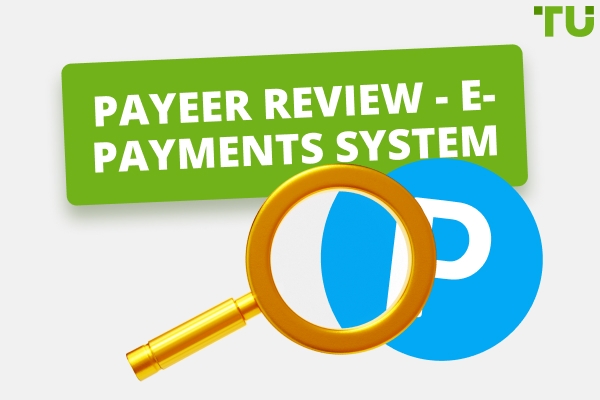

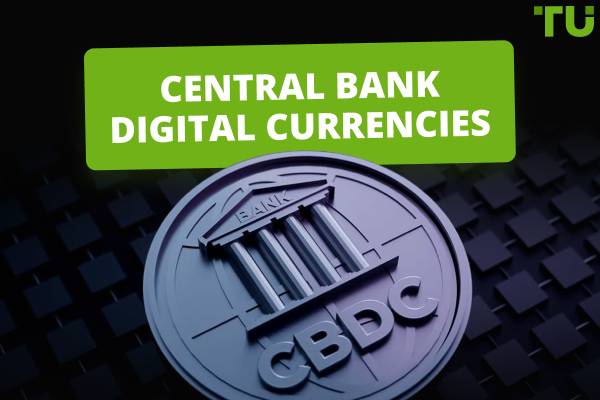
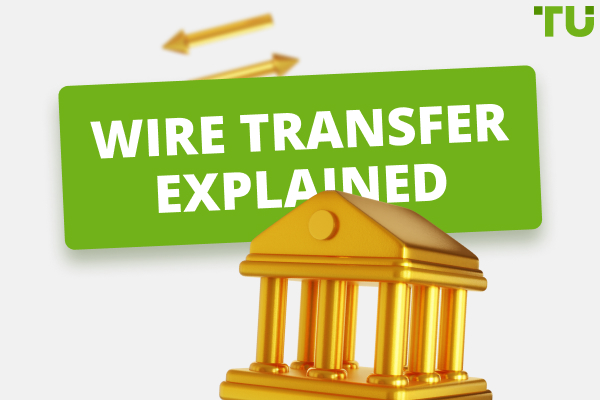
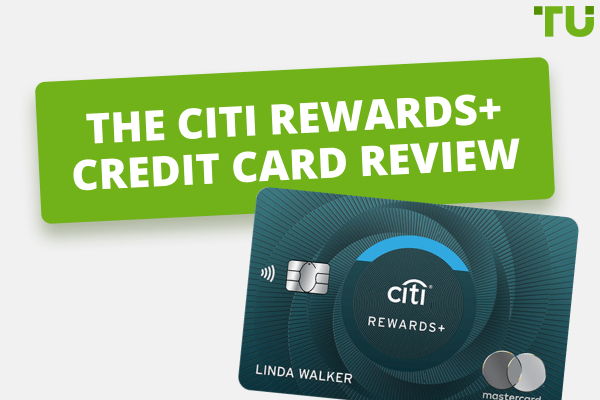
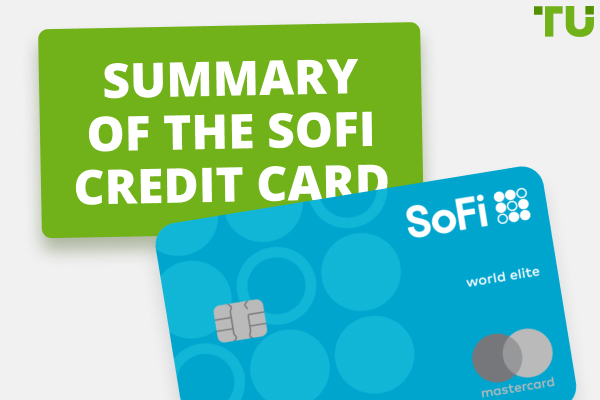
FAQs
What is Payment Network Services?
This is a service that allows you to instantly or very quickly make payments and money transfers around the world. Any bank card can be linked to the service, and it is available to both individuals and legal entities.
What are the key advantages of electronic payment services?
The key advantages are the high speed of transactions, complete transparency and detailing of transactions, protection of user funds and data, the ability to pay for purchases in foreign online stores, and automatically converting currencies.
Are there any disadvantages to electronic payment services?
All systems of this type require the provision of personal data. They may also have regional and local restrictions on some features and charge fees for almost all user transactions.
How are the best payment systems ranked?
The Traders Union experts analyzed over 100 static and dynamic indicators of each service provider and compared them against each other. Users can conveniently study the results of the Traders Union ratings instead of analyzing the sites themselves, thereby maximizing a significant savings of their time.
